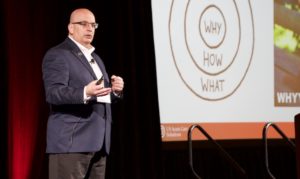Dr. Tony Cirillo On Politics, Winning ACEP’s Excellence in Health Policy Award, and Getting Back “A Little Bit of the Soul”

Cirillo recalled the long legislative slog: “Part of advocacy is understanding that the battle could be raging for years. But you can’t walk away from them,” he said.
This year at ACEP, Cirillo will receive The Colin C. Rorrie, Jr, PhD Award for Excellence in Health Policy, the top award for legislative advocacy in emergency medicine. ACEP gives the award to “an individual who has made a significant contribution to achieving the health policy objective s of the College and/or who has demonstrated outstanding skills, talent, and commitment as an administrative or political leader.”
In a recent interview, Cirillo described it as sort of a “lifetime achievement” award for legislative advocacy. It’s not for any one win, he said, but for a sustained commitment to advocacy over time. The fight over the SGR epitomizes what is required.
Finally, in 2015, Congress passed MACRA, a Medicare reform bill that did away with the much-loathed “doc fix” and replaced it with the Merit-Based Incentive Payment System (MIPS), and incentives for joining an Alternative Payment Model. It wasn’t perfect, but like so many things in politics, it was an incremental step forward. And it was considered a big win for physicians.
“In the ED, we like to see things, diagnose things, and disposition things, and the faster you can do that the better,” Cirillo said. Political and advocacy battles are often the opposite. They require the long-term commitment to change for which Cirillo is being recognized.
Staying Grounded
Right from the start, Cirillo said he had an interest in advocacy. “For me, it was that other part of emergency medicine that I found helped me to stay grounded on those days when a clinical shift was really hard,” Cirillo said.
Cirillo did his residency at UMass, where he was mentored by Dr. Richard Aghababian, a trailblazer in the field who passed away in 2014. Aghababian was on the ACEP National Board of Directors at the time. He took Cirillo under his wing and encouraged his interest in the administrative side of emergency medicine.
In 1991, as a first-year resident, Cirillo was able to attend ACEP, which was held that year in Boston. At the assembly, he attended a meeting of the Emergency Medicine Residents Association (EMRA) and was immediately interested in how the group was advocating for change in the industry. In 1992, Cirillo ran for and was elected to the national EMRA Board of Directors, and the rest is history.
“Don’t Think of It as Politics”
Cirillo frequently gives talks on the importance of legislative advocacy, and one thing he often repeats is an exhortation not to think of advocacy as politics. “When you talk about advocacy and policy a lot of people’s eyes glaze over,” he said. “My pitch is always about, within emergency medicine and within life we all have the things we’re passionate about. So pick the thing you care most about and just try and make that better.”
Cirillo always tells his audience: “You all care about something. Find the thing that you’re willing to give something of yourselves to and go and work on that. Work on what you care about.”
The second point Cirillo likes to make is that everything he does, he does to make it easier to take care of patients at the bedside. If more legislators understood what emergency medicine physicians do every day, he said, perhaps they would make policy that actually helps physicians to better take care of patients.
“If you ever walked them through what it’s like in the ED for an hour, they wouldn’t believe what we do all day long,” Cirillo said. “It’s saving lives while some intoxicated person is trying to assault you. Or caring for the family of someone who just died, and then walking across the room and picking up a chart for someone who sprained an ankle.”
Obviously getting involved can help make the changes that help physicians to take care of patients, Cirillo said, but it can also help them feel just a little better about what they do every day. “To me, being involved and finding your issue gives you back a little bit of the soul that you can lose in the ED because it’s so hard,” he said.
NOTE:Dr. Cirillo (in conjunction with Dr. Steven Stack, Past President of the AMA) will speak at ACEP18 in San Diego on: The Great Debates: Trumpcare vs. Obamacare. The talk will be Wednesday, Oct 3, 12:30p-1:20p Upper Level, Room 33A

